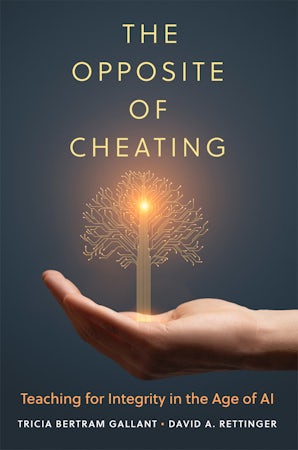Jim Brown reviewed Opposite of Cheating by Tricia Bertram Gallant
meh
I read this as part of a reading group on campus - the group included faculty and staff interested in how to approach teaching and learning in the wake of LLMs. The book is essentially just a manual of how to teach, in general. The idea is that good teaching is the best way to combat "cheating." A return to things like writing in class, paper-based assignments, oral exams, etc. are some of what's offered.
But the book also uses GPT at points, I guess as a way to incorporate the tool into the authors' process and to perform a way of adopting the tech in some way.
The book also makes a strange argument that it is up to instructors to protect "assessment integrity" and thus the value of degrees and institutions. This is not how I think about the problem at all, but maybe I'm crazy? …
I read this as part of a reading group on campus - the group included faculty and staff interested in how to approach teaching and learning in the wake of LLMs. The book is essentially just a manual of how to teach, in general. The idea is that good teaching is the best way to combat "cheating." A return to things like writing in class, paper-based assignments, oral exams, etc. are some of what's offered.
But the book also uses GPT at points, I guess as a way to incorporate the tool into the authors' process and to perform a way of adopting the tech in some way.
The book also makes a strange argument that it is up to instructors to protect "assessment integrity" and thus the value of degrees and institutions. This is not how I think about the problem at all, but maybe I'm crazy? I'm invested in providing interesting learning opportunities to students, but I don't see myself as being responsible for protecting the institution. And if students aren't into the opportunities I'm providing, that's mostly something I have to accept. They are spending time and money on an education - if they just want the credential, I think that's a huge bummer. But I see that as a social failure and not something I am responsible for trying to fix in the classroom.
I remain skeptical that these tools can do much of anything that is good, and I am 100% convinced they are damaging to those who are learning new skills.









